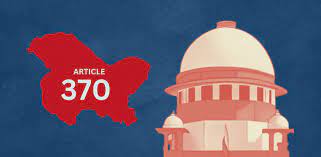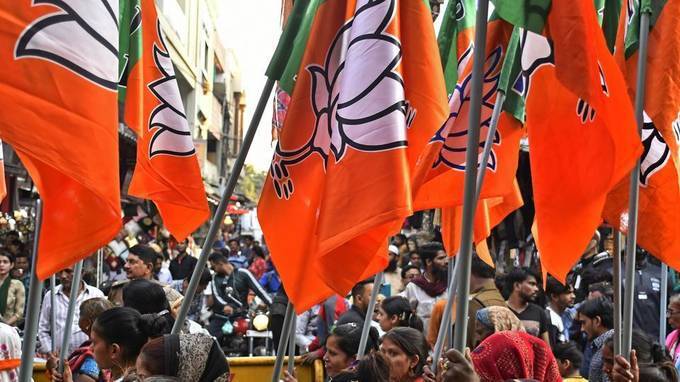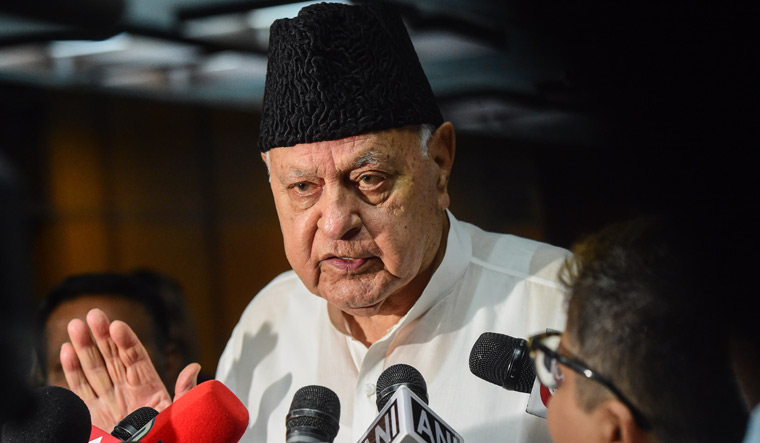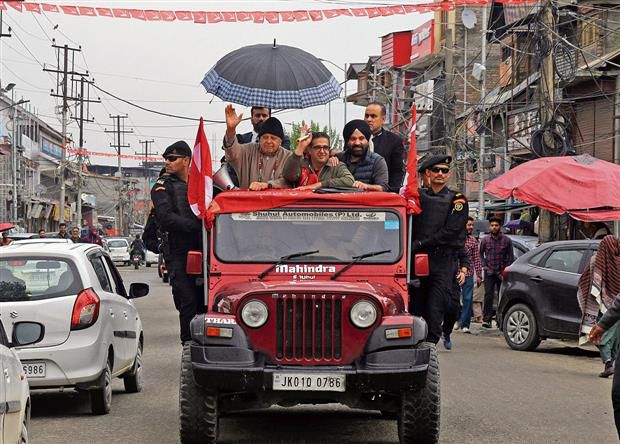The Supreme Court on Tuesday expressed doubts that the Constituent assembly debates or a speech by one of its “weighty” members could represent a “commitment by the Dominion of India to the state of Jammu & Kashmir” regarding perpetuity of the latter’s special status under Article 370, observing that such an inference would be difficult to be accepted as a legal principle.
“Can we say that a speech made by an individual member of the Constituent Assembly, howsoever weighty, represents a binding commitment of the Dominion of India to the state of Jammu and Kashmir? This will have implications in interpreting the constitutional provisions…it is difficult to accept,” a Constitution bench, led by Chief Justice of India Dhananjaya Y Chandrachud said.
The bench, which also comprised justices Sanjay Kishan Kaul, Sanjiv Khanna, Bhushan R Gavai and Surya Kant, is hearing a clutch of petitions challenging the 2019 abrogation of Article 370 that granted J&K special status, and the bifurcation of the erstwhile state into two Union territories.
On the eighth day of the arguments in the matter, senior counsel Dinesh Dwivedi, representing one of the applicants, argued that Article 370 ceased to exist, became inoperative and academic once the “permanent determination” was made by the J&K constituent assembly that the erstwhile state will have its own Constitution.
“President could not exercise power to extend Constitution of India to J&K indefinitely. It had to stop once the Constituent assembly of J&K dispersed after enacting the J&K Constitution and deciding finally what was to be ceded to the Union of India and Parliament. Article 370 was not a repeated and a perennial source of power,” he said.
Dwivedi read from the speech of Constituent assembly member Gopalaswami Ayyangar, who said the Government of India committed itself to the people of Kashmir that an opportunity would be given to the people of the state to decide for themselves the Constitution of the state, as well as the sphere of Union jurisdiction over the state.
The bench, however, asked the senior lawyer if Ayyangar’s speech could form a constitutional or legal basis of buttressing the point that the special status of J&K could never have been annulled.
“What you are asking us to read into it is something that’s not actually there. We cannot read a portion of a debate without taking into account the context… in a debate there are statements and replies to questions,” it said.
The bench added: “Once you become a part of the nation, it’s the entire nation you are a part of.” Responding, Dwivedi said that such a proposition on one nation one Constitution is problematic because there is no proscription against J&K having a separate Constitution.
To this, the bench said that the net result of Dwivedi’s argument would be that the Constitution of India, in its application to J&K, would stand frozen as of January 1957 when the J&K Constituent Assembly decided to have a separate Constitution.
“Therefore, no further development in Indian Constitution can at all apply to J&K, according to you. How can that be accepted? If Article 370 ceased to operate but Article 1 (defining India as a Union of states) continues to operate, J&K is an integral part of India. Surely, the jurisdiction of every democratically elected institution cannot be excluded…There has to be then a provision in Indian constitution which excludes its application to J&K,” it added.
The bench further told Dwivedi that if his argument on the redundancy of Article 370 after January 1957 is accepted, there would be no restraint on the power of Parliament since it is only through the impugned constitutional provision that the opinion and approval of the J&K assembly was required to apply the provisions of the Indian Constitution to the Valley state. “Unless we accept that Article 370 existed till 2019, there would be no trammel on the jurisdiction of Parliament,” it further observed.
The bench will continue hearing the case on Wednesday when the Union government is expected to open its arguments in the matter.
A raft of petitions, filed by parliamentarians from the National Conference party, Kashmiri citizens, former bureaucrats and various organisations laid the challenge to the abrogation of Article 370 soon after the presidential order in August 2019.
While some petitioners brought up the requirement of consent from the Constituent Assembly for the abrogation of Article 370, others questioned the validity of President’s Rule that was in effect when the abrogation was done. A few of these pleas went back to the Instrument of Accession, while some highlighted the Supreme Court’s ruling of 2018 that observed that Article 370 had gained a status of permanence. Many of these pleas also challenged the Jammu & Kashmir State Reorganisation Act, by which the state was bifurcated into two Union territories with effect from October 30, 2019.
On August 28, 2019, the Supreme Court issued notices on the pleas despite resistance from the central government, which argued that Article 370 had international and cross-border implications.
On July 3, the Supreme Court notified the setting up of a new Constitution bench, comprising its five seniormost judges. A week later, the new bench said that day-to-day hearing in the case would begin from August 2.






